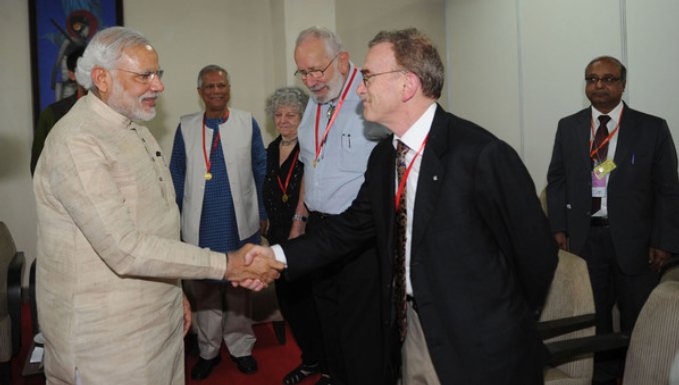
AsianScientist (Jan. 9, 2015) – By Archita Bhatta – As part of a bid to attract talent to scientific research, the Indian government recently doubled fellowships paid to about 100,000 young researchers, but the hike may not be enough to stop a ‘brain drain’ to greener pastures.
T.S. Rao, senior advisor at the Department of Biotechnology says the hike announced in October will “help researchers continue their work without worrying about financial pressures, to some extent.”
Other senior academics say that the new incentives are not enough and do not compare with facilities and remuneration provided to researchers in the developed countries.
“The new fellowships are attractive for fresh graduates joining doctoral programmes, but the hikes for research associates and post-doctoral researchers are not enough to sustain India’s research ecosystem,” says Amitabha Bandyopadhyay, faculty at Indian Institute of Technology, Kanpur.
“The average age of completion of PhD is 27—28 when individuals are trying to start families,” says Bandyopadhyay. “The revised fellowship of Rs. 38,000 (US$596) per month is not sufficient at this stage of life. A person who joined the work force soon after graduation would be earning much more,” he tells SciDev.Net.
Bandyopadhyay says a further upward revision of post-doctoral fellowships would be needed in order to retain the best scientific research talent in the country.
Efforts are being made to contact well-known Indian scientists resident abroad to encourage them to return home and the science and technology department runs attractive ‘re-entry fellowships’ offering substantial remuneration and benefits for returning scientists.
K. VijayRaghavan, secretary, Department of Science and Technology, says the creation of conditions favourable for the return of Indian origin expertise is important to boost research in India, along with partnerships and skill development.
A survey published by Nature in October 2012, placed India at the top of 16 countries that send scientists overseas. The study, that surveyed 17,000 foreign-born scientists excluding those of Chinese origin, found that India accounts for 40 percent of scientists migrating to other countries for work.
Manish Kumar, an Indian scientist at the Max Plank Institute for Heart and Lung Research, Germany, points to the fact that the present hike in scholarships was preceded by widespread protests by researchers. “Salaries need to keep up with rising inflation if similar situations are to be avoided in the future,” he tells SciDev.Net.
——–
Source: SciDev.Net.
Disclaimer: This article does not necessarily reflect the views of AsianScientist or its staff.












